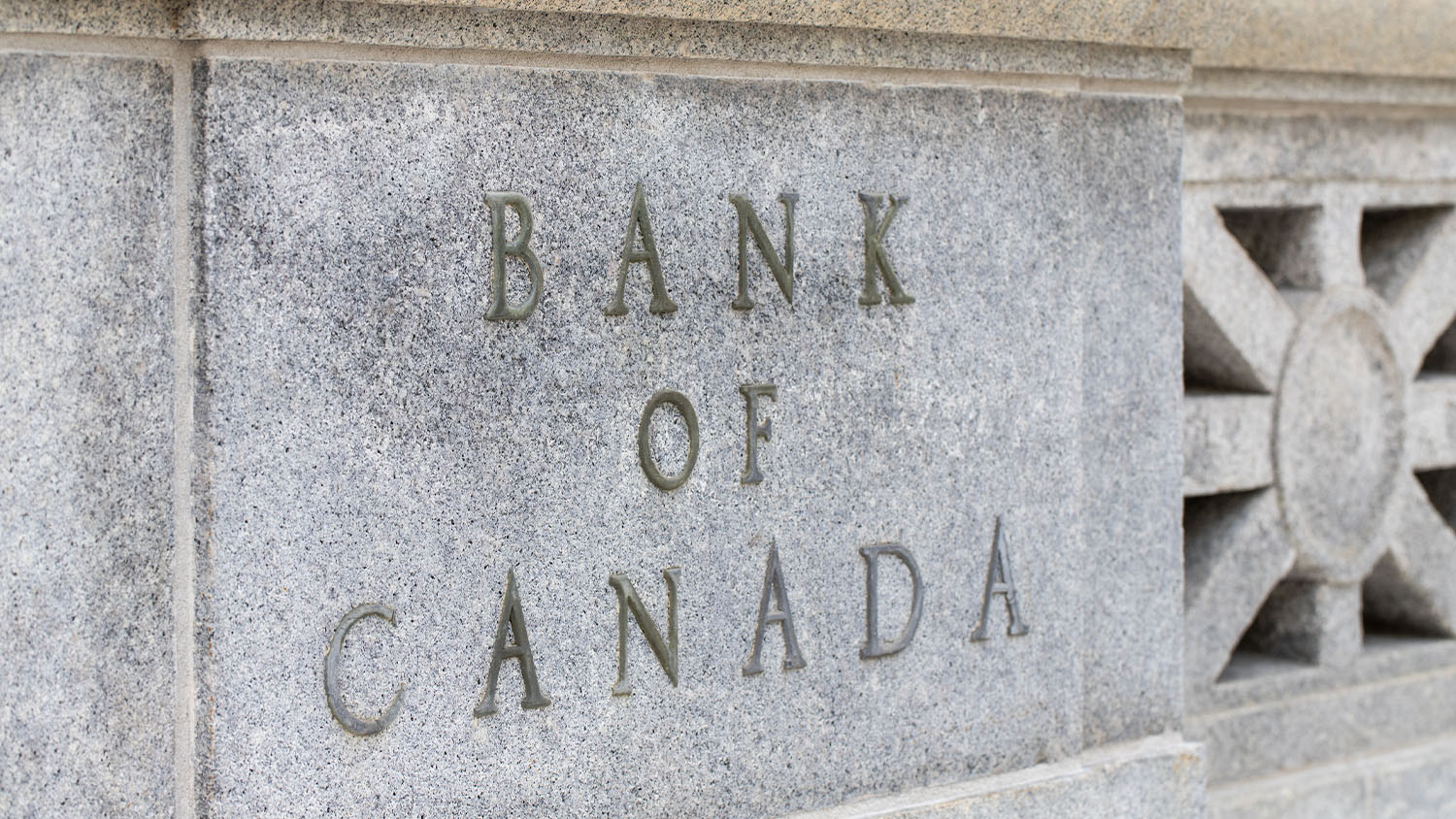Homeowners and Investors, Here’s What You Need to Know About the New 40-Year Amortization Mortgage
The real estate sector, known for its dynamic nature and often unpredictable shifts, is once again in the limelight, courtesy of Equitable Bank's recent announcement. They've introduced a novel 40-year amortization mortgage, catching the attention of market enthusiasts, professionals, and ordinary citizens alike.
Such an initiative holds the potential to reshape the way homeowners, those eyeing property investments, and, notably, First Time Home Buyers approach property finance. To ensure you navigate these waters informed, we’ve delved deeper into what this could mean for you.
Understanding the 40-Year Amortization Mortgage
Equitable Bank, standing tall as one of the pillars in Canada's banking landscape, has chosen collaboration as its strategy for this venture.
The bank has teamed up with a third-party lender, bringing to the market a mortgage product that stretches the conventional amortization boundary, setting it at a whopping 40 years. This strategic move isn't merely a banking innovation; it is rooted in a deeper understanding of today's market realities.
Traditionally, mortgages have spanned durations of 25 or 30 years. By extending this timeframe, Equitable Bank's primary goal is to lighten the monthly financial burden homeowners face in the form of mortgage payments.
The big change has the potential to revolutionize the home-buying process, making the dream of homeownership or even property investment more attainable. It's especially pertinent considering the economic backdrop we're contending with — rising living costs, stringent economic challenges, and the undeniable strain on housing affordability.
This extended amortization period, thus, arrives as a beacon of hope for many, potentially easing some of the financial strains tied to property ownership in today's context.
Key Takeaways for Homeowners and Investors:
- Flexibility: This mortgage caters to both everyday homeowners and real estate investors, accommodating owner-occupied purchases, refinances, rental properties, and investor portfolios.
- Availability: Initially, this product will roll out in British Columbia, Alberta, and Ontario. Expansion plans will be driven by its success and market demand.
- Pricing Insight: While the exact rates remain under wraps, anticipate rates around 9%. This is due to the product's nature: an uninsured alternative lending scheme with a longer amortization, indicating potentially increased risks.
- Market Relevance: This product responds to growing affordability concerns, mainly fueled by surging property prices and the climbing cost of living. It targets those seeking financial reprieve, either through debt consolidation via refinancing or those attempting property acquisition in these tough times.
Implications for First Time Home Buyers:
Navigating the property market for the first time can be daunting. The extended amortization period might seem enticing due to the lower monthly payment commitment. However, first-time buyers should consult financial experts to understand the long-term implications, like the total interest paid over the term.
Broader Market Insights
Rate Hikes
The National Bank warns of impending effects from previous substantial rate increases. Despite the lags in seeing their full repercussions, the consumer sector is expected to remain subdued. A whopping 42% of the impact from the rate hikes since March 2022 is still looming.
Mortgage Concerns
A recent survey showcased a worrying trend: 1 in 6 mortgage holders find it challenging to meet their mortgage obligations, a figure that has doubled since March. The future doesn't seem too rosy either. Many are apprehensive about potentially higher payments upon mortgage renewal, with 57% of those renewing within the next year expressing significant concerns.
Over-Expenditure on Housing
A striking 60% of Canadians are currently spending beyond the Canada Mortgage and Housing Corporation’s (CMHC) recommended 30% of pre-tax income on housing costs.
Waning Consumer Confidence
Consumer confidence indicators have recently taken a hit. Notably, the Bloomberg Nanos Canadian Confidence Index has slipped into negative territory, signaling a pessimistic economic outlook by Canadians. There’s been a significant drop in the real estate outlook and personal financial sentiment.
The Takeaway
Equitable Bank's new 40-year amortization mortgage product could be a game-changer for many. Whether you're an existing homeowner, a potential investor, or a first-time buyer, it's essential to be aware of market dynamics and the broader economic context.
This product offers a glimmer of hope for many struggling with current financial constraints, but like all financial decisions, it requires thorough consideration and consultation.
Navigating a Complex Canadian Economic Landscape: Between Rate Hikes, Recession, and Real Estate
Rate Hikes and Economic Slowdown
The Bank of Canada (BoC) has been in a challenging position. At its September 6th monetary policy meeting, the central bank opted to leave interest rates unchanged, recognizing that prior rate hikes have been successful in decelerating the economy.
Despite a roller coaster of GDP growth across quarters, the overarching sentiment among the Governing Council was that the economy has entered a period of softer growth.
The decision to hold rates steady signals a fine-tuning of monetary policy; the BoC is evidently satisfied that its prior tightening measures are rippling through the economy effectively.
The bank seems to be in a "wait and watch" mode, seeking to balance its policy between slowing down an overheated economy and mitigating recessionary pressures. One major concern here is the impact on housing demand and household credit, both of which are showing signs of cooling off.
While this may be beneficial for dampening an overheated housing market, it also leads to a reduction in construction funding, affecting job markets and supply chains.
Real Estate: The Softening Market and Variations by Region
The Governing Council acknowledged that high interest rates have resulted in a decline in housing demand. However, the paradox lies in the fact that despite reduced demand, house prices continue to inch higher due to limited supply and strong underlying demand factors.
This situation is affecting homebuilders who find it increasingly challenging to finance construction projects. Delinquencies, while still low, are ticking upward, which is a troubling sign for the household credit sector.
In terms of regional variations, Ontario seems to be the most affected, with a predicted decline in home prices by around 25% by 2024. British Columbia and Quebec are not far behind.
Conversely, areas like the Prairies and Atlantic Canada have been relatively stable, buoyed by affordability and population inflows. It's essential to note that localized economic factors, demographic shifts, and policy measures contribute significantly to these regional disparities.
The Recession Cloud and its Impact on Real Estate
Oxford Economics' and BNN Bloomberg outlook suggests a bleak picture, forecasting a mild recession by the end of this year that would drive down average house prices by an additional 10%. This recession would have multiple contributory factors, including tightened credit conditions, higher mortgage rates, and various government policies designed to reduce speculation and foreign buying in the real estate market.
What makes this prediction even more alarming is that it follows on the heels of already sluggish mortgage credit growth and a sharp decrease in the number of buyers with high loan-to-income ratios.
Interestingly, the BoC seems to be adopting a somewhat hawkish stance, indicating that further tightening could be on the table if inflation does not stabilize. This approach could be problematic in a recessionary environment, as tighter monetary policy might exacerbate economic contraction.
Inflation: The Elephant in the Room
Both the BoC and Oxford Economics highlight inflation as a pressing concern. While the central bank acknowledged that slowing demand should theoretically curb inflation, it pointed out that inflation remains stubbornly high.
High oil and gasoline prices are further aggravating this, even though these inflationary pressures might moderate in the longer run due to base-year effects.
Future Implications for Everyone Involved
For potential homeowners and investors, these macroeconomic trends underscore the importance of strategic decision-making. The real estate market, already a complex ecosystem, is now subject to broader economic fluctuations, including interest rate policies and looming recessionary pressures.
Portfolio diversification may be an avenue to explore for investors who might find that traditional real estate investments no longer offer the same level of security or returns.
For policymakers, the dual challenges of inflation and potential recession require a nuanced, flexible approach. A premature tightening cycle could worsen a recession, but letting inflation run too hot could erode real incomes and savings.
The key takeaway is that Canada's economic and real estate landscapes are in a state of flux. Whether you're an investor, policymaker, or average citizen, understanding these dynamics can help prepare you for what could be a bumpy road ahead.
Additional Key Points
- Mortgage Arrears: A modest rise to 0.23% by mid-2023, mitigated by banks allowing extended amortizations on variable-rate mortgages.
- Mortgage Credit Growth: Expected to decline by about 2% through the first half of 2024 before picking up later.
- Housing Completions: A projected 21% fall in 2024, following a 2.4% decline in 2023.
- Loan-to-Income Ratio: A considerable decrease in high-ratio buyers, signaling a cautious market.
Navigating this complex environment will require adaptability, keen market understanding, and perhaps most importantly, strategic patience.
How Recent Trends in Canada’s Mortgage and Housing Market Affect You
The Canadian housing market is in a state of flux, and if you're a homeowner, prospective buyer, or an investor, it's critical to be on top of the latest trends.
Recent reports indicate that fixed mortgage rates are set to rise, and a growing percentage of non-homeowners are losing hope of ever buying property. So, what does this mean for different stakeholders?
The Surge in Fixed Mortgage Rates
First, let's tackle the imminent rise in fixed mortgage rates. Thanks to a 16-year high in Government of Canada bond yields, experts suggest we could see a surge in mortgage rates ranging from 0.20% to 0.30%.
Bond yields have risen in response to higher-than-expected inflation in Canada and messages from the U.S. Federal Reserve hinting at a more prolonged high-interest-rate environment
If you're about to renew your mortgage or enter the market, this could be a crucial factor in your decision-making process.
What This Means for Homeowners
For current homeowners, especially those planning to renew their mortgage in the next few years, a rise in rates means higher monthly payments. A recent survey found that 65% of mortgage holders in Canada expect to renew their mortgage in the next three years. If you're among them, it's time to reevaluate your budget and see how these expected increases may impact you.
If you're on a variable-rate mortgage, brace for even more instability. Your interest payments as a share of disposable income could creep past the 10% mark.
Consequently, you may find yourself cutting back on spending to manage the new debt landscape. A third of variable-rate borrowers are already considering switching to a fixed rate to avoid this volatility.
What This Means for Prospective Buyers
If you're a prospective homebuyer, rising interest rates might further dampen your spirits, adding to the affordability crisis. Almost half of non-homeowners now think they'll never be able to afford a home. Planning and budgeting become even more critical in such an environment.
To combat rising costs, you might consider opting for shorter mortgage terms, as one in five borrowers is doing, in the hope that rates will start to fall.
Rate Cuts: A Distant Hope
There's a certain level of conversation circulating about the possibility of the Bank of Canada cutting rates to alleviate the financial strain for borrowers. Unfortunately, the reality doesn't appear to be as hopeful as some might wish.
Expert opinions and market trends point to a lack of rate cuts until at least late 2024 or even stretching into early 2025. This protracted period of elevated interest rates has been termed a "higher for longer" interest rate environment.
For long-term investors, this signals a time for caution. The traditional method of "buy and hold" in real estate might need revisiting, as the prospects of riding out higher mortgage rates for a few months and then refinancing at a lower rate are dim.
This could significantly affect one's investment decisions, particularly if you rely on rental income to offset mortgage costs. A reduced chance of rate cuts should urge investors to think about the feasibility of bearing higher costs over an extended period.
This situation impacts not just housing but other interest-sensitive sectors like auto loans, student loans, and business loans. Thus, the ripples of the rate decisions will be felt far and wide, affecting the broader economy.
You may need to adjust your overall financial strategies, including debt repayment and investment avenues, in light of this "higher for longer" landscape.
Shifting Preferences and Strategies
Mortgage products are increasingly becoming a matter of strategy rather than a simple financial tool for home ownership. With 72% of current mortgage holders showing a strong preference for fixed rates, it's evident that people are attempting to lock in rates to provide some level of financial predictability. Given the volatility and the forecasts for even higher rates, this strategy could serve as a buffer against the stormy economic climate.
If you find yourself overwhelmed by the choices or unsure about what suits your particular circumstance, it might be a wise move to consult a mortgage broker.
Recent trends indicate that mortgage brokers are playing an increasingly vital role in the market. These professionals can offer a nuanced view of your options, leveraging their up-to-date knowledge of the lending landscape, which is invaluable in these rapidly changing times.
Brokers have access to a variety of lenders and can often negotiate better rates or more favorable terms than you might be able to secure independently.
What About Investors?
Real estate investors face a double-edged sword with the current combination of high interest rates and elevated property prices.
The Return on Investment (ROI) calculations that might have looked promising a year or two ago could now be thrown into question. High acquisition costs coupled with steep monthly mortgage payments might significantly eat into rental yields and long-term capital appreciation.
Given these challenges, investors should seriously consider other forms of real estate investment, such as Real Estate Investment Trusts (REITs) or investing in commercial properties which might offer a different risk-return profile.
Diversification of your investment portfolio into other asset classes like stocks, bonds, or commodities may also be a prudent strategy to reduce risk exposure to the real estate market. In other words, don't put all your eggs in one basket, especially when that basket is wobbling.
The Renewal Stress
Mortgage renewals have always been a bit stressful, but in the current climate, they are becoming a significant source of anxiety.
Recent studies show that 69% of borrowers feel apprehensive about the renewal process, a rise from 63% just six months earlier. Given the new dynamics of interest rates and economic uncertainties, this uptick in stress is understandable.
The level of anxiety is particularly high among first-time borrowers who are navigating this complex process for the first time. Adding to this are new-to-Canada borrowers who might not only be dealing with the financial aspects but also facing language barriers and unfamiliar regulatory frameworks. These specific groups may find the renewal process overwhelming, raising the stakes for financial planning and professional guidance.
For borrowers across the board, renewing a mortgage now requires a more rigorous evaluation of one's financial health and future outlook.
You need to scrutinize the terms more carefully, perhaps even consider shopping around for better rates, and definitely prepare for the possibility of higher monthly payments.
An increase in interest rates of even 0.2% could translate to thousands of dollars over the course of a loan. So, meticulous preparation and consultation with financial advisors or mortgage brokers can offer a buffer against this heightened renewal stress.
By understanding and adapting to these trends and challenges, stakeholders can make more informed decisions and navigate the complexities of Canada's evolving housing and mortgage landscape.
The Takeaways
So, what's the moral of the story here? If you're a current homeowner, now may be the time to lock in a rate or reconsider your payment strategies.
If you're a potential homeowner, brace for more challenges but also consider shorter terms and consult professionals to navigate the complex terrain. If you're an investor, be prepared for a higher-risk environment and consider diversifying.
Change is the only constant here, and in Canada's current housing and mortgage landscape, being prepared could make all the difference.
Canadian Mortgage Landscape: Inflation, Interest Rates, and Real Estate Market Trends
The Canadian mortgage landscape is currently a subject of intense scrutiny, following recent changes in interest rates and inflation figures. Here's a comprehensive look at the current scenario, merging insights from two recent articles, specifically tailored for the Wilson Team audience.
Inflation Figures Stir Debate
Canada's headline inflation rate spiked from 2.8% in June to 3.3% in July, driven by a 0.6% increase in consumer prices. These figures have divided experts over the implications for the central bank's policy interest rate.
Doug Porter, chief economist at BMO Capital Markets, has identified a 30% likelihood of the Bank of Canada (BoC) raising rates next month. Porter noted that this inflation rate is now higher than the U.S. for the first time since pre-pandemic days, calling it "not a good report for the Bank of Canada."
However, Porter also anticipates that a recent rise in Canada's unemployment rate, coupled with slower spending, could strengthen the case for a BoC rate pause.
Desjardins economist Tiago Figueiredo remarked that the central bank is still far from its 2% inflation target. Former BoC Governor David Dodge emphasized that elevated interest rates would likely need to continue through 2024 into 2025 for the BoC to reach its target.
Impact of Rate Hikes on Home Sales
The two latest rate hikes from the Bank of Canada have had a visible impact on home sales, which fell 0.7% from June to July. This was the first monthly contraction in six months. While sales rose in Saskatchewan (+9%), Quebec (+5.1%), and Alberta (+4%), declines in B.C. (-2.6%) and Ontario (-5.5%) reversed the upward trend. Calgary, however, saw an increase of 9%.
National Bank's Daren King noted that record demographic growth in Canada is aiding in preventing a significant drop in sales.
Home Prices: A Cross-Country Roundup
The national average home price continued to slide in July to $668,754. Although this figure is 6.3% higher than the previous year, it's down over 18% from February 2022's peak of $816,720.
A brief overview of provincial and municipal average house prices as of July illustrates varied trends, with some regions experiencing growth while others face declines.
Resale Market Moving Towards Balance
The Canadian Real Estate Association (CREA) reported that the number of newly listed homes increased for the fourth consecutive month, rising 5.6% from June. This has caused the sales-to-new listings ratio to ease, and the supply has also ticked up slightly.
"With sales dipping and resale supply on the rise, markets are moving towards being more balanced," observed TD Economics' Rishi Sondhi.
Looking Ahead
While the real estate market appears to be settling down, some experts warn of continued headwinds from elevated interest rates. Interest rates are expected to remain at current levels into next year, according to BMO's Robert Kavcic, which will continue to challenge the housing market.
The interplay of inflation, interest rate policies, and market trends paints a complex picture for potential homebuyers and sellers. Understanding these dynamics is key to making informed decisions, whether you are looking to buy a home, sell one, or gauge the market's overall direction.
With the Wilson Team's guidance and tailored mortgage strategies, you can navigate this evolving landscape with confidence.
Navigating the Shifts in Canadian Real Estate: The Mortgage Dilemma and the Recreational Property Market
The Canadian real estate landscape is evolving rapidly, impacted by a confluence of factors such as the rise in interest rates, the pandemic-induced boom in recreational properties, and the subsequent cooling off in demand.
Let's look at information from two distinct but interrelated aspects of the real estate market in Canada: the mortgage situation and the changes in recreational property prices.
The Mortgage Situation in Canada
The Regretful Mortgage Landscape
According to a new survey by the Real Estate and Mortgage Institute of Canada Inc. (REMIC), 34.1% of Canadians regret their current mortgage situation. This unsettling sentiment is largely a result of the Bank of Canada's efforts to combat inflation by steadily increasing interest rates.
Rise in Interest Rates
Interest rates have climbed to 5% from an historic low of 0.25%. Indications suggest that rates could rise again in early September. The hike has caused 21.8% of those surveyed to find their mortgages “unaffordable.” A staggering 68.4% of Canadians were unaware of what their mortgage payments would be at a 5% interest rate.
Long-term Implications
The fear of being unable to pay off mortgages is palpable. Nearly half of Canadians do not believe they will be able to pay off their mortgage by age 60, while 8.2% think they will be 80 or older before their mortgage is paid.
Connection to Recreational Property Market
The mortgage situation has implications on other aspects of the real estate market, including recreational properties. High borrowing costs and economic uncertainty are two overlapping areas affecting both sectors. We will further explore this in the next section.
Recreational Real Estate Markets
The Pandemic Boom and Subsequent Decline
During the pandemic, the aggregate cost of recreational homes surged. Now, 2023 is seeing price declines in all markets except Alberta. The aggregate price of single-family homes in recreational regions is predicted to decline by 4.5% to $592,005. Still, the national aggregate price will be 32% higher than 2020 levels.
Regional Breakdown
Alberta: The only region expected to see an increase in aggregate prices, owing to stable demand and a shortage of inventory.
British Columbia: Lower inventory and pent-up demand are leading to modest price decreases.
Ontario: Reduced demand and a trend toward normalcy, with some areas such as Muskoka remaining desirable.
Quebec: Greater decrease due to high borrowing costs and economic uncertainty.
Atlantic Canada: Fluctuation in demand and inventory, with a cautious outlook on the future.
The Prairies: Steady demand with decreasing inventory, keeping recreational prices high.
Future Prospects
Buyers are showing a willingness to wait for the right property, a sharp contrast to the competition seen during the pandemic. The combination of reduced demand, economic uncertainty, and low housing inventory is reshaping the market.
Connecting the Dots
Impact of Mortgage Rates on Recreational Properties
The rise in interest rates has led to regret and unaffordable mortgages, affecting the broader economy. This has trickled down to the recreational property market, causing reduced demand and a cautious approach by buyers.
The New Normal in Recreational Markets
The pandemic-driven surge in demand for recreational properties has settled into a more traditional pattern, impacted by higher borrowing costs. However, the lasting effects of the pandemic, such as full-time relocations to recreational regions, have created a new normal in certain areas like Alberta.
Opportunities and Challenges
For those in a position to buy, the willingness to wait may offer opportunities for well-priced properties. However, the uncertainty and fluctuations across different regions present challenges that require careful navigation.
The Canadian real estate landscape is at a complex crossroads. The connection between the mortgage landscape and the recreational property market showcases how intertwined and multifaceted the real estate sector is. As interest rates continue to shape mortgages and borrowing, the recreational property market is also adapting to new realities.
Whether it’s the challenge of navigating mortgages or capitalizing on opportunities in the recreational market, understanding the broader context and regional nuances is vital.
For buyers, sellers, brokers, and policymakers alike, the current landscape offers a rich tapestry of insights and lessons that reflect not just economic shifts but also changing lifestyles and preferences in a post-pandemic Canada.
The Bank of Canada Raises Interest Rates for the Third Time This Year
The Bank of Canada raised its key interest rate again this month to 5%. This is the third rate hike of 2023 and the tenth since March of last year.
According to a Bank of Canada press release, inflation has fallen from 8.1% at its height in 2022 to 3.4% this past March. However, the central bank indicated there are signs that inflation is not slowing quickly enough to meet its target of a 2% inflation rate by 2025. The central bank cited labour shortages and rising housing prices as two factors putting upward pressure on inflation numbers.
This move is not without its critics. Benjamin Tal, deputy chief economist at CIBC, took issue with the central bank’s calculation methods. In an interview with the Financial Post, he explained that the Bank of Canada includes mortgage rates when determining inflation. This practice could be inaccurately increasing the inflation rate.
“Higher interest rates are leading to higher mortgage payments that are adding to inflation,” he said. He comparedthe policy to “putting a humidifier and a dehumidifier in the same room and letting them go at each other.”
Tal speculated that if the Bank of Canada were to drop mortgages from its calculations, Canada’s inflation rate would already be at or below the Bank of Canada’s 2% target.
What This Means for Home Buyers
Mortgage fees have increased as a result of the interest rate hike. As of late July, most mortgage rates are over 6%. Variable mortgages have the highest rates while fixed five-year terms tend to have the lowest.
Some banks such as Toronto Dominion and the Royal Bank of Canada do have some lower rates on products called “High Ratio Mortgages.” In order to qualify for these products, home buyers must make a down payment of more than 20% of the home’s total value.
New Buyers
The higher rates may make qualifying for a mortgage more difficult, putting a new home out of reach for many.
However, those who do qualify at this higher rate may enjoy future savings when the interest rates come down again.
Renewing Home Owners
Most homeowners seeking to renew their mortgages this year will likely face higher monthly payments and some tough decisions.
Variable-rate mortgages currently have higher costs, but will be more responsive to a future drop in interest rates. However, they will also go up if interest rates rise again. Fixed mortgages have lower interest rates but require buyers to lock into a particular rate for a specific time frame. Currently, fixed one-year terms have higher rates than the longer five-year options. Renewing homeowners will need to decide whether to gamble on the rates coming down next year or lock in for a longer period.
According to CBC News, some homeowners are avoiding higher monthly payments by extending the amortizations on their mortgages. However, this does increase a home’s cost in the long run.
The Takeaway
Although we are seeing fewer interest rate increases this year compared to 2022, the mortgage market continues to have its share of surprises.
Navigating both the buying and renewal process is more complicated than ever. Industry professionals recommend working with a mortgage broker. Having an expert in your corner can save you time and money.
Is this recent interest rate hike stressing you out? Drop us a line. We’re here to help!
New Housing Minister Steps Up to the Plate
Central Nova MP Sean Fraser was sworn in as Canada’s new housing minister on July 26. Fraser tweeted, “Our economy is growing and so are our communities. We need to help build enough housing to make sure every Canadian has a safe and affordable place to call home.”
Fraser previously held the office of Minister of Immigration, Refugees and Citizenship. He is replacing York South-Weston MP Ahmed Hussen, who is now taking up the role of Minister of International Development.
The change in ministers also comes with a change in the portfolio. Whereas Hussen dealt with housing, diversity and inclusion, Fraser’s portfolio covers housing, infrastructure and communities.
Background
Fraser was first elected to the federal government in 2015. He previously worked as a lawyer specializing in commercial litigation and international dispute resolution.
In Fraser’s tenure as Minister of Immigration, Refugees and Citizenship, the department began the Atlantic Immigration Program to help businesses hire skilled foreign workers in the region. It also introduced new
technology in an effort to reduce processing times and fast-track visa applications for immigrants highly likely to become permanent residents.
What This Means for Housing in Canada
This change may signal the government’s intent to make housing a priority. Combining the housing portfolio with infrastructure and communities could lead to a more integrated approach to tackling housing supply issues.
Cabinet ministers are given mandates by the prime minister to carry out specific priorities. Fraser’s future decisions will depend on the mandate he receives. However, he is entering his new office with some ideas. After being sworn in he said, “The answer is, at least in part, to continue to build more stock.”
Housing stock is an important piece of the puzzle, but, as Fraser acknowledged, it is only part of a complete approach. It takes years to build houses; increasing housing stock won’t relieve pressure on the market in the short term.
Other proposed solutions include introducing new legislation to deter individuals from purchasing multiple properties for investment purposes, and creating incentives for developers to build rental properties.
Recent Approaches to Canada’s Housing Shortage
During Hussen’s tenure as housing minister, the federal government introduced several strategies to make housing more affordable.
New legislation called the Prohibition on the Purchase of Residential Property by Non-Canadians Act barred foreign businesses and individuals from buying residential property in Canada. The act was amended in March of this year to allow immigrants with work permits to purchase residences. Foreign businesses and individuals may also purchase vacant land zoned as residential or mixed-use. Non-Canadians may also purchase residential property to be developed for housing.
Hussen also implemented the Housing Accelerator Fund which, according to the Canada Mortgage and Housing
Corporation, “Provides incentive funding to local governments encouraging initiatives aimed at increasing housing supply. It also supports the development of complete, low-carbon and climate-resilient communities that are affordable, inclusive, equitable, and diverse.”
The Takeaway
Although the federal government does seem to recognize that housing is becoming a key issue for Canadians, any changes made now will take time to bear fruit.
In the meantime, if you’re thinking of purchasing a property in the next year, contact us today. We’d be happy to help you navigate today’s complicated housing market.
Canadian Bonds Resilience Amid Rising Mortgage Rates: What it Means for Homebuyers
Despite a challenging economic landscape characterized by high interest rates and continued inflationary pressures, Canada's covered bonds have demonstrated robustness that bucks the current trend. In a recent report, Fitch, the renowned credit ratings agency, maintained Canada's AA+ Long-Term Foreign Currency Issuer Default Rating (IDR), lending a reassuring outlook amidst rising mortgage rates.
These persistently high ratings were achieved in spite of a tumultuous 2022, marked by falling home prices, significant inflation, and increased interest rates. Key to this resilience is the structure of the B-20 guidelines governing the loans that form the covered bond pool of assets. A crucial component of these regulations is the mortgage stress test, which mandates that potential homebuyers qualify for an interest rate two percentage points higher than their contractual rate.
But while this resilience bodes well for the market at large, increasing fixed mortgage rates are stirring concerns for a variety of homebuyers. Let's delve into what these developments could mean for new or first-time home buyers, families looking to upsize, and retirees or seniors considering downsizing.
First-time Home Buyers
New entrants into the housing market could feel the pinch of rising fixed mortgage rates, as lenders continue to adjust their rates in line with the surging Government of Canada bond yields. Increases in the rates for 1- and 2-year terms to up to 6.25% and 6.40% respectively have been observed, pushing the financial boundaries for first-time buyers.
Any potential buyers should remain vigilant, considering both their current financial state and potential future rate hikes. On the positive side, first-time buyers could benefit from the stability of bond ratings, indicating a certain degree of resilience in the housing market.
Upsizing Families
For families looking to upsize, higher interest rates may mean larger mortgage payments. While families might have more financial flexibility than first-time buyers, an additional rate hike could strain their budget.
Consequently, families considering upsizing might need to reassess their plans and perhaps delay their move until the market stabilizes. On the flip side, falling house prices might present an opportunity for those with secure financial footing to upgrade their living situation at a potentially lower cost.
Retirees and Seniors
Rising mortgage rates might have a different impact on retirees or seniors, particularly those looking to downsize. If they have an existing mortgage, they could face higher payments with adjustable rates.
Now, those who own their homes outright may find this an advantageous time to sell, particularly in areas where demand remains high despite the falling home prices. They may then opt to rent or move to areas with lower housing costs, effectively capitalizing on the current market conditions.
Given the economic landscape, the Bank of Canada’s recent increase of the overnight rate to 4.75% further compounds these concerns. With persistent high inflation, the bank’s decision puts additional pressure on mortgage borrowers. Current market forecasts suggest another quarter-point rate hike could be around the corner, meaning all categories of buyers need to factor these potential hikes into their planning.
These rising rates have been driven in part by hawkish comments from Federal Reserve Chair Jerome Powell, suggesting more policy tightening is on the horizon. Rate hikes by other global central banks have only amplified concerns about inflation and the economic impact of higher-than-expected policy rates.
The resilience of Canada's covered bonds provides a silver lining to the rising mortgage rates. However, the implications vary greatly for different demographic groups. Whether you're a first-time homebuyer, a family seeking to upsize, or retirees looking to downsize, it's critical to stay informed about the latest market trends. Consider seeking professional financial advice to make decisions that align with your financial goals and the current market landscape.
While the situation might seem daunting, let's put the pieces together and look at the big picture. Despite the falling home prices, the overall economic health of Canada remains positive. This is good news for all segments of buyers, as it reflects a sturdy financial environment that can absorb shocks and rebound from downturns.
Unlocking Your Home's True Potential: The Unbeatable Advantage of a CHIP Reverse Mortgage
In the throes of 2023, we're witnessing a decline in real estate transactions attributed to towering interest rates, marking an opportune moment for us, The Wilson Team, to reassess and refine our financial strategies. Despite temporary pauses in interest-rate hikes by central banks, inflation remains a major concern, compounded by demographic and economic transitions which will undoubtedly have an impact on the lending and real estate spheres.
This shifting landscape calls for an expansion of our services, offering lending solutions that effectively address the evolving needs of our valued clients. At the forefront of these solutions is the CHIP Reverse Mortgage from HomeEquity Bank – a bespoke answer to current financial challenges, particularly for our senior and retired clients.
Retiring With a Plan
In today's aging demographic, the need for accessible cash flow is palpable. Statistics from StatCan reveal that roughly 22% of Canada's working population, aged between 55 and 64, is on the brink of retirement. This group has been grappling with the effects of all-time high inflation rates, a scenario that continues to add pressure even with a slight deceleration. The persistent rise in the cost of food and services exacerbates this burden.
The next few years could present tough choices for Canadians entering their golden years, especially given that the 55+ age group relies heavily on services like healthcare, home care, and leisure. Whether they plan to supplement their pensions, manage unexpected expenses, support their children's first home purchases, or enhance their own homes for comfortable aging in place, seniors will require convenient access to cash flow.
Dealing with Lending Regulation Changes
However, upcoming regulatory changes concerning mortgage lending might complicate this. The traditional cash flow source for homeowners, Home Equity Lines of Credit (HELOCs), could be hit by these changes. The Office of the Superintendent of Financial Institutions (OSFI) has indicated a decrease in the maximum Loan-to-Value (LTV) for combined loan plans from 80% to 65% by the end of 2023. This, coupled with proposed changes to the loan-to-income, debt-to-income restrictions, and interest rate affordability stress tests, could limit borrowing capacity through conventional methods, possibly steering Canadians towards alternative and private lenders.
In this evolving scenario, the CHIP Reverse Mortgage offers an increasingly compelling solution. This program, without any qualifying income criteria, allows Canadians aged 55+ to access tax-free cash up to 55% of their home's value. Without any monthly mortgage payments until they decide to move or sell their homes, retirees gain additional financial flexibility.
Misconceptions About CHIP Reverse Mortgages
Misconceptions about reverse mortgages can deter some people, largely due to a mistaken belief that they're unregulated. However, reverse mortgages in Canada are strictly regulated, with HomeEquity Bank operating as a Schedule 1 Canadian Chartered Bank. Misunderstandings include fears of losing home ownership, owing more than their home's value, and that interest rates and setup costs are exorbitant. These beliefs are far from the truth, with several safeguards in place to protect homeowners' financial security and property rights.
The CHIP Reverse Mortgage from HomeEquity Bank, designed for the current economic climate, can enhance your cash flow by unlocking the equity in your home. This is particularly beneficial for seniors and retirees aiming to secure their financial future. At The Wilson Team, we believe that serving you optimally paves the way for a prosperous financial future, and we're committed to facilitating this process with innovative, long-lasting solutions.
Let's dispel some common misconceptions about reverse mortgages.
Losing Home Ownership
First, the notion that you might lose ownership of your home. The reality is that you continue to hold the title and maintain full control of your home, just like a conventional mortgage. Your only obligations are to live in the home, maintain it well, and manage property taxes and insurance payments.
Owing More Than Your Property Value
Secondly, the concern that you could end up owing more than your home's worth. However, HomeEquity Bank's No Negative Equity Guarantee* ensures that homeowners will never owe more than the fair market value of their property at the time of sale or relocation. This guarantee is an essential safeguard in the current unpredictable economic climate, promising that even if home values fall below the mortgage amount owed, HomeEquity Bank will cover the difference.
*The No Negative Equity Guarantee applies as long as the homeowner maintains the property in good condition, pays property taxes and property insurance, and the property is not in default. The Guarantee excludes administrative expenses and interest that have accumulated after the due date.
Higher Interest Rates
The third misunderstanding is that reverse mortgage interest rates are significantly higher than traditional mortgages. While the rates are a bit higher, the difference is not extreme and has significantly narrowed in the past year. These slightly higher rates balance the fact that clients aren't required to make monthly mortgage payments, thus improving their cash flow.
Long and Costly Process
Finally, there's a belief that arranging a reverse mortgage is a costly process. In reality, like a conventional mortgage, clients need to pay for a property appraisal and independent legal advice. The only additional cost is a one-time closing and administration fee.
The Wilson Team is proud to work with HomeEquity Bank, Canada's leading provider of reverse mortgages, committed to assisting Canadians aged 55+ in enjoying a fulfilling retirement with solutions tailor-made for their needs. With a keen understanding of the market, we can provide robust support to meet your financial needs.
Our dedicated team of Mortgage Specialists manage each file from application to funding. Additionally, we offer comprehensive online tools and resources to keep you well-informed.
To wrap up, our suite of products, including the CHIP Reverse Mortgage can meet your income objectives. Amid this changing economic climate, the CHIP Reverse Mortgage can provide a valuable solution to boost your cash flow by tapping into the equity in your home.
Don't let the fear of the unknown stand in your way. Contact us today to learn more about how we can help secure your financial future with our innovative, long-term solutions.
More Canadians Expected To Default On Their Mortgages
According to a recent Royal Bank of Canada (RBC) report, mortgage delinquencies could rise by more than one-third of current levels over the coming year.
This is largely due to high housing costs, increased interest rates, inflation, and the end of pandemic government support programs.
Although mortgage defaults are currently low, the report noted increases in late payments on other types of products like car loans and credit cards. Mortgage payments may soon follow suit.
Interest Rates
The low rates of 2021 are now a thing of the past. Canadians with variable rate mortgages are already feeling the effects of higher monthly payments.
Those who locked in low fixed rates may experience increased financial pressure when their agreements come up for renewal in the next few years.
High Debt Levels
Canadians are also carrying high levels of debt. According to the report, the debt-to-income ratio of most Canadians is now higher than pre-pandemic levels and is likely to rise.
Canadians now have the highest household debt levels of any country in the G-7. High housing costs have been blamed for this. On average, home prices are now more than double the cost compared to 2011.
Discontinuation Of Pandemic Assistance
The last of the benefits offered by the Canadian government to help people weather the pandemic ended in 2022. These benefits helped many Canadians stay financially stable between during lockdowns and other pandemic restrictions. The RBC report noted net worth actually increased during the pandemic.
With these programs ending, more people could be in financial difficulty this year.
Slowing Economy
The RBC report further predicted a slowing economy in the coming months. How much? The language was cautious, predicting a “modest contraction.” However, the report’s authors believe job losses are likely.
For many Canadians, the loss of a job can mean the difference between keeping up with mortgage payments, and defaulting or selling.
Solutions
Whether you already have a mortgage or are getting into the housing market for the first time, there are things you can do to help ensure financial stability.
It’s important to have a good understanding of your finances. Review them at least monthly so you know where you stand.
It’s also vital to have enough savings to last you at least three to six months without work.
Optional mortgage insurance is another great option that can help protect you and your family from default in the event of job loss, critical illness, or death. Policies usually offer to continue mortgage payments for a specific period, or pay off the mortgage entirely.
Getting a good rate on your mortgage can also make a big difference. While prime lending rates are set by the Bank of Canada, there are differences in the products offered by various institutions. Spending the time to research and compare different offerings can save you thousands of dollars in the long run.
The Takeaway
Although the housing market does seem to be picking up, it’s still best to be cautious when taking on any kind of new debt, even a mortgage.
Make sure you understand the risks and know what you can afford, even if interest rates increase or your financial situation changes.
Working with a mortgage broker can help ensure you get the best rates and terms on your mortgage. Contact us today and we can help you build a secure financial future.










